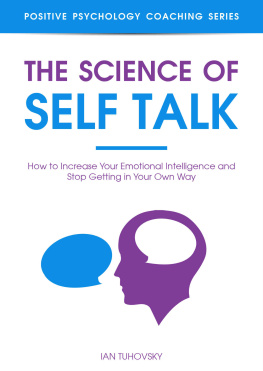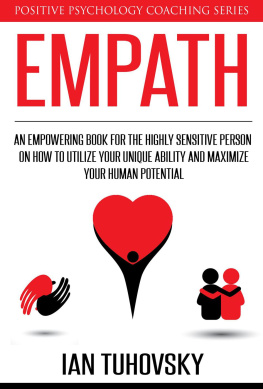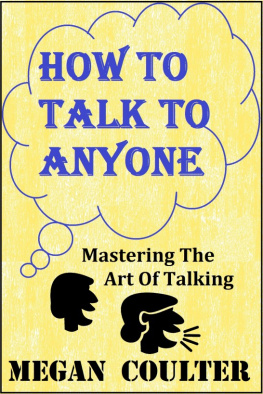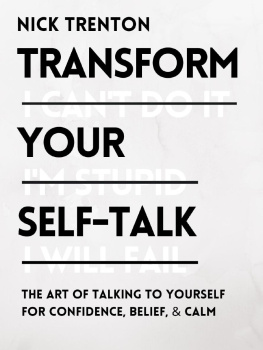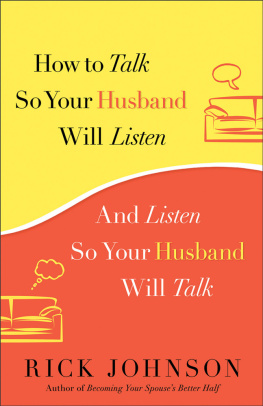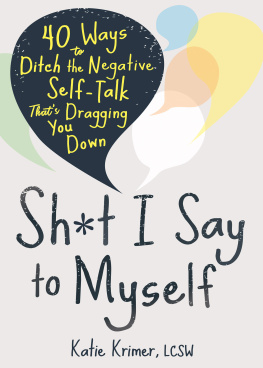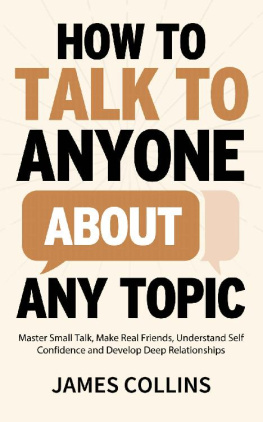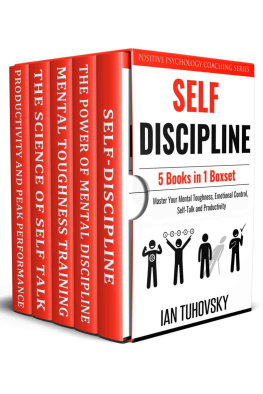Ian Tuhovsky - The Science of Self Talk: How to Increase Your Emotional Intelligence and Stop Getting in Your Own Way (Master Your Self Discipline)
Here you can read online Ian Tuhovsky - The Science of Self Talk: How to Increase Your Emotional Intelligence and Stop Getting in Your Own Way (Master Your Self Discipline) full text of the book (entire story) in english for free. Download pdf and epub, get meaning, cover and reviews about this ebook. year: 2018, publisher: Independently published, genre: Religion. Description of the work, (preface) as well as reviews are available. Best literature library LitArk.com created for fans of good reading and offers a wide selection of genres:
Romance novel
Science fiction
Adventure
Detective
Science
History
Home and family
Prose
Art
Politics
Computer
Non-fiction
Religion
Business
Children
Humor
Choose a favorite category and find really read worthwhile books. Enjoy immersion in the world of imagination, feel the emotions of the characters or learn something new for yourself, make an fascinating discovery.
- Book:The Science of Self Talk: How to Increase Your Emotional Intelligence and Stop Getting in Your Own Way (Master Your Self Discipline)
- Author:
- Publisher:Independently published
- Genre:
- Year:2018
- Rating:3 / 5
- Favourites:Add to favourites
- Your mark:
The Science of Self Talk: How to Increase Your Emotional Intelligence and Stop Getting in Your Own Way (Master Your Self Discipline): summary, description and annotation
We offer to read an annotation, description, summary or preface (depends on what the author of the book "The Science of Self Talk: How to Increase Your Emotional Intelligence and Stop Getting in Your Own Way (Master Your Self Discipline)" wrote himself). If you haven't found the necessary information about the book — write in the comments, we will try to find it.
Everything Will Be Fine
Theres No Way This Will Work!
Why Does This Always Happen To Me?
These are just a few examples of positive and negative self-talk that you have probably said to yourself hundreds of times.
You do it when you are nervous, you do with when you are happy, you do it when you are frustrated. And it affects your decision-making process.
Self talk has a huge impact on your life, even if you do not see it right away. It can cripple your confidence or give you that extra oomph to reach your goals.
It can make or break you.
But did you know that you can take control over your self talk and harness its immense influence over your life?
Discover The Science Of Self Talk - The Ground-Breaking Self Help Book By Mindfulness Expert, Ian Tuhovsky!
Now you can learn more about self-talk and understand how it works in the background, affecting your every move, influencing your every decision, and keeping you from reaching your goals.
By the end of this eye-opening positive psychology book, you will be able to:
Learn How To Listen To Your Inner Voice & Understand Its Meaning
Know The Difference Between Constructive & Dysfunctional Self-Talk
Identify Negative Self Talk & Prevent It From Destroying Your Plans
Discover How Positive Self Talk Can Give You A Confidence Boost
Get To Know Yourself Better, Develop Emotional Intelligence, & Love Yourself
A SPECIAL GIFT FOR YOU: Link to download my 120-page e-book Mindfulness Based Stress and Anxiety Management Tools for FREE!
Are You Talking To Me?
Talking to yourself and learning how to listen will get you one step closer to understanding how to rewire your brain, hack your self-talk, and use it to thrust yourself towards your goals.
Just like watching a movie with directors commentary, self-talk is always there to comment on your actions, thoughts, emotions, and decisions.
Thats why its extremely important to regain control over your self-talk and even learn how to turn down its volume.
What Are You Waiting For?
Click Buy Now & Learn How To Improve Your Life!
Ian Tuhovsky: author's other books
Who wrote The Science of Self Talk: How to Increase Your Emotional Intelligence and Stop Getting in Your Own Way (Master Your Self Discipline)? Find out the surname, the name of the author of the book and a list of all author's works by series.

